Work-Life Balance in Your Personal Life
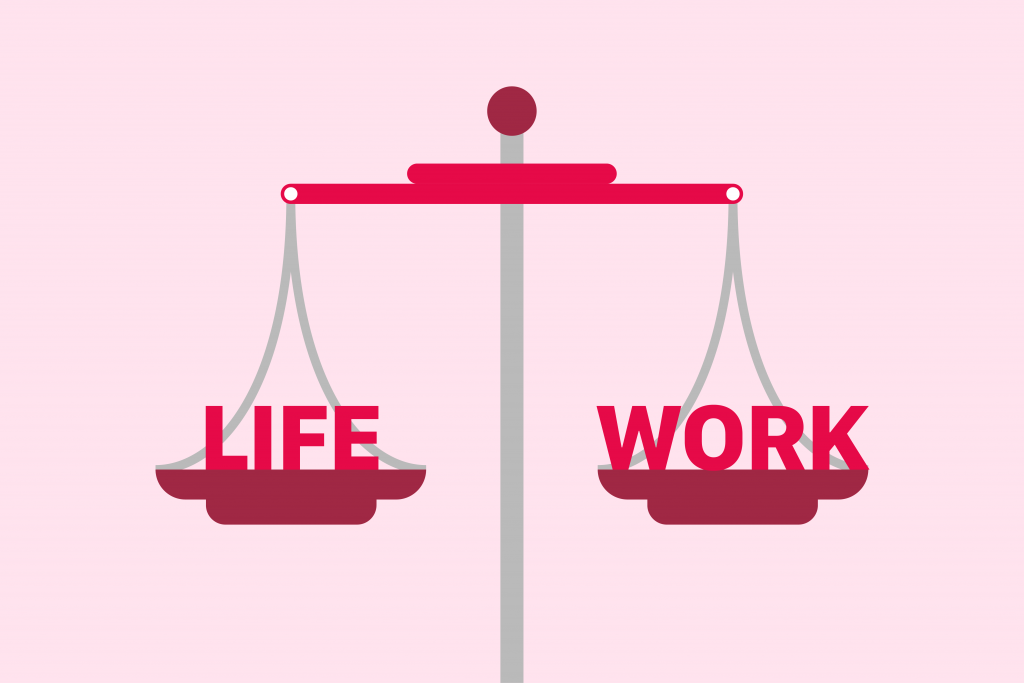
The demands of our jobs frequently force us to put everything else in our lives on the back burner. When driven to achieve professionally, it is easy to put our personal health and happiness on the back burner. Achieving a healthy work-life balance, also known as work-life integration, is essential not only for enhancing our physical, emotional, and mental well-being but also because it plays an essential role in our professional development.
Maintaining a healthy equilibrium between your personal and work life might be difficult, but it’s necessary. Here are some ways you might better balance your job and personal life today.
Where Did Work-Life Balance Come From?
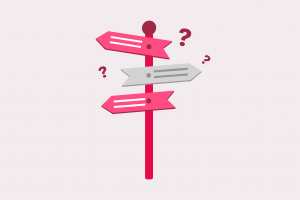 The concept that adequate rest is necessary to remain productive is centuries old. In the 1800s, during and after the era of the industrial revolution, labor unions pushed for the necessity of providing workers with a day off. This eventually turned into a “weekend” consisting of two days.
The concept that adequate rest is necessary to remain productive is centuries old. In the 1800s, during and after the era of the industrial revolution, labor unions pushed for the necessity of providing workers with a day off. This eventually turned into a “weekend” consisting of two days.
But back then, most “work” consisted of manual labor, and when employees left a job site, they also left their work there when they went home. They weren’t required to think about their jobs or worry about what might be happening while they were away, so they were truly able to rest while they were away from the office.
The times have undergone significant shifts. And the modern concept of maintaining a work-life balance emerged relatively recently.
Its first use was likely in the late 1970s in the United Kingdom and the middle of the 1980s in the United States. It has, however, taken on a new significance as a result of recent developments in technological capabilities, which have made it possible for employees to maintain contact around the clock, seven days a week.
People complain that they are expected to be “on-call” at all times, even when they are on vacation, preventing them from having a life outside work. This problem has been made worse by smartphones and remote working technology, making it difficult for people to “switch off” and truly relax, even when they are on vacation.
What Is Work-Life Balance and Why Is it Essential?
 In a nutshell, “work-life balance” refers to the condition of equilibrium attained by an individual when they appropriately prioritize the requirements of their professional and personal lives. A healthy balance between one’s professional and personal lives leads to a reduction in stress, a lowered chance of burnout, and an overall improvement in one’s feeling of well-being.
In a nutshell, “work-life balance” refers to the condition of equilibrium attained by an individual when they appropriately prioritize the requirements of their professional and personal lives. A healthy balance between one’s professional and personal lives leads to a reduction in stress, a lowered chance of burnout, and an overall improvement in one’s feeling of well-being.
The following are some of the most prevalent factors that contribute to an unhealthy work-life balance:
- Increased job duties
- Putting in long hours of work
- The burden of additional tasks and chores at home
- Raising children
Not only does work-life balance benefit employees, but it also benefits companies. Employers dedicated to providing environments that support work-life balance for their employees can:
- See cost savings
- Experience fewer instances of absenteeism
- Benefit from a more loyal and productive workforce
Employees can have a better work-life balance if their employers provide choices such as flexible work schedules or the ability to telecommute.
Consider how you can strike a healthy balance between your professional and personal responsibilities as you design a time management plan that will work for you. However, work-life balance is not so much about splitting up the hours in your day evenly between your professional and personal lives.
Instead, work-life balance is about having the freedom to accomplish things in your professional life while still having the time and energy to enjoy your personal life. For example, a flexible work schedule where you work longer hours some days to free up more time later in the week.
The Advantages of Work-Life Balance
Work-life balance has several advantages for physical health and mental well-being.
Fewer Health Problems
Overworking and long hours can negatively affect people. Side effects of overworking may include:
- Fatigue: This has a detrimental influence on concentration and productivity. If you make errors or ignore obligations, your reputation at work may suffer.
- Reduced Personal Connections: Relationships can suffer as a result of overworking, harming one of your most critical social foundations. Families, friends, and others close to you may feel neglected and ignored.
- Heart Issues: People who work long hours of overtime have a greater risk of cardiac issues than those who do not work extra. Again, working overtime is related to lowering reported overall health.
This is due to both stress and a lack of good work and life practices. Stress can also impact pre-existing medical issues. Working overtime regularly is also linked to:
- Increased neck and muscular pain
- Increased workplace injuries
- Weight increase that is unhealthy
Plus, longer working hours are counterproductive. Excessive working time is strongly connected to decreased effectiveness and productivity.
Researchers at Stanford discovered that employees’ production drops considerably after working 50 hours+. After 55 hours, it nearly falls completely. The same researchers also found that people who work 70 hours per week don’t produce much more with the extra 15 hours.
When we feel encouraged and involved, our physiology reacts with a satisfying variety of neurochemicals. They increase our sense of connectedness, creativity, vigor, and collaboration. Feeling supported benefits both you and your company.
Less Burnout
Burnout is an actual type of mental fatigue, linked to anxiety and depression. It might be an indication that your workplace health isn’t great.
Burnout occurs when the job environment and the employee are not a good fit. It has been suggested that burnout is linked to six factors:
- Lack of control
- Lack of or too little sense of reward
- Lack of community
- Lack of fairness, or the perceived lack of it
- Conflict of values
- Work overload
These are some examples:
- Work overload occurs when work expectations surpass human capacity. Or n other words, when you are over assigned tasks.
- Feeling that you do not have enough control over work can be due to chaotic working circumstances or micromanagement.
- Values conflict occurs when employment responsibilities clash with personal ideals and values.
Burnout is less of an issue when your job and personal lives are in sync, with a proactive burnout prevention plan in place. Depending on your work setting, burnout and overwork might return if you are not careful. And while it is possible to recover from burnout, it is not an easy feat.
Increased Attentiveness
Mindfulness is the capacity to retain awareness and attention to your actions at any given time. Mindful breathing is one example of this. Conversely, mindfulness is not easy to achieve, mainly if you are preoccupied with other commitments and problems.
Mindfulness is especially challenging to practice when you are expected to multitask at work. You can reach more awareness when you have the freedom to handle your duties while working. And you must have the support of your team when necessary.
Common Reasons for Lack of Work-Life Balance
Balancing work and family can be quite challenging, with the following factors increasing complications:
Increased costs without a wage rise: Naturally, the rising costs of living can cause stress and leave workers feeling they need to work more.
Growing workplace obligations: Additional job duties can be a critical cause of a poor work-life balance.
Increased domestic responsibilities: Having more home responsibilities, such as caring for children and older relatives, makes balancing work and personal life more difficult.
Working overtime: More people are working over 40 hours weekly, with hours worked increasing for many in the last few years.
Having a family: While it’s common for women, and less so for men, to pause their career when a child is born, some may work more after having a kid.
How to improve work-life balance
Here are eight methods for improving your work-life balance.
Recognize the Perfect Work-Life Balance Doesn’t Exist
 When you hear the term “work-life balance,” you likely envision having a constructive work day and leaving work early enough to spend the rest of your time with family and friends. While this appears to be the best situation, it’s not always possible.
When you hear the term “work-life balance,” you likely envision having a constructive work day and leaving work early enough to spend the rest of your time with family and friends. While this appears to be the best situation, it’s not always possible.
Strive for a more realistic schedule rather than a flawless one. On some days, you may be more focused on work, while on others, you may have more energy and time to explore leisure activities or spend time with those you care about. Balance is acquired through time, not daily, and some days will simply be more work-heavy than others.
Maintaining flexibility and regularly reviewing where your concerns, your objectives, and your priorities are is critical. For example, your family may need you sometimes, and you may need to travel for business at other times. However, allowing yourself to be open to redirecting and analyzing your needs on any given day is critical to establishing balance.
Find a Career You Enjoy
 Although employment is a cultural expectation, your work should not be limiting your outside life. Simply said, you will not be happy if you dislike what you do. You don’t need to enjoy every aspect of your job, but it should be attractive enough that you don’t dread going to work every morning. Job satisfaction and life satisfaction can be closely associated for some people.
Although employment is a cultural expectation, your work should not be limiting your outside life. Simply said, you will not be happy if you dislike what you do. You don’t need to enjoy every aspect of your job, but it should be attractive enough that you don’t dread going to work every morning. Job satisfaction and life satisfaction can be closely associated for some people.
Ideally, find a career you love so much that you would consider doing it for free. Something is wrong if your job makes it tough to accomplish the activities you like doing outside of work. You might be working in a demoralizing atmosphere, having a toxic supervisor or an otherwise toxic workplace, or doing a job you hate. If this is the case, it is time to look for other employment.
Put Your Health First
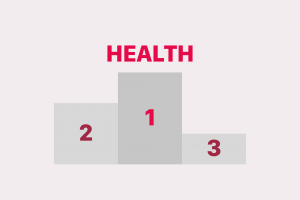 Your primary priority should be your total physical, mental and emotional well-being. If you suffer from depression or anxiety and believe counseling may assist you, schedule those appointments, even if it means leaving work early on occasion or skipping your nightly hobby.
Your primary priority should be your total physical, mental and emotional well-being. If you suffer from depression or anxiety and believe counseling may assist you, schedule those appointments, even if it means leaving work early on occasion or skipping your nightly hobby.
If you have a chronic disease or condition, do not be afraid to call in sick on bad days. Overworking oneself hinders you from improving and may force you to take more days off in the future.
Prioritizing your health will help you be a better employee and person. You will miss less work and be happier and more productive there. Plus, prioritizing your health does not have to entail dramatic or harsh measures. It might be anything as fundamental as regular exercise for better sleep and daily moods.
Disconnect Your Devices
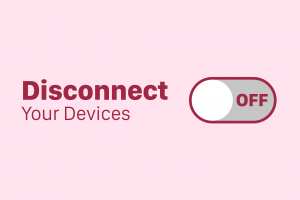 Breaking links with the outer world enables us to recover from weekly stress and creates space for new thoughts and ideas to develop. Unplugging may be as easy as practicing transit meditation on your daily commute rather than reading work emails. It’s especially important to shut off your screens before bedtime, as the blue light can stimulate feelings of wakefulness.
Breaking links with the outer world enables us to recover from weekly stress and creates space for new thoughts and ideas to develop. Unplugging may be as easy as practicing transit meditation on your daily commute rather than reading work emails. It’s especially important to shut off your screens before bedtime, as the blue light can stimulate feelings of wakefulness.
Take a Break
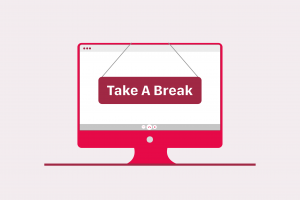 Sometimes fully disconnecting entails taking a vacation and shutting off all work for a while. Whether your vacation is a one-day rest at home or a two-week trip to Cancun, taking time off to refresh is essential.
Sometimes fully disconnecting entails taking a vacation and shutting off all work for a while. Whether your vacation is a one-day rest at home or a two-week trip to Cancun, taking time off to refresh is essential.
According to the U.S. Travel Association’s State of American Vacation 2018 research, 52% of employees say they have unused vacation days at the end of the year. Employees are frequently concerned that taking time off may interrupt the workflow and result in a backlog of work when they return.
However, this apprehension should not prevent you from enjoying a much-needed holiday. The fact is that there is no nobility in failing to take well-deserved time off from work. The benefits of taking a day off outweigh the drawbacks. With careful preparation, you may take time away without worrying about burdening your coworkers or returning to a massive workload.
Make Time for Yourself, Friends & Family
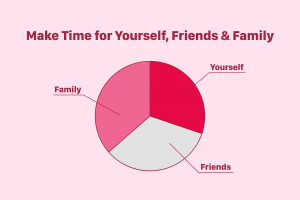 While your job is essential to pay bills, it should not take up your entire life. You were a person with a life before assuming this role, and you should be able to maintain a personal life with hobbies that bring you joy. To achieve work-life balance, purposeful activity is required.
While your job is essential to pay bills, it should not take up your entire life. You were a person with a life before assuming this role, and you should be able to maintain a personal life with hobbies that bring you joy. To achieve work-life balance, purposeful activity is required.
You will never have time to accomplish other things outside of work if you do not make time for it. Regardless of how intense your daily schedule is, you ultimately have control over your time and life.
Mark your calendar for romantic and family dates when organizing time with your loved ones. Planning one-on-one time with someone you live with may seem strange, but it will ensure you spend meaningful time with them without work-life conflict. Work keeps you busy, but that doesn’t mean you should overlook your connections.
Recognize that no one at your workplace will adore or respect you as your loved ones do. Also, remember that everyone is replaceable at work, and no matter how essential you believe your position is, the corporation will not skip a beat if you leave tomorrow.
Establish Limits and Work Hours
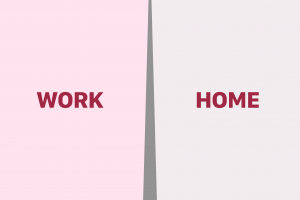 Set particular work hours as well. Whether you work from home or abroad, it is critical to plan when and where you will work. Otherwise, you may find yourself answering business-related emails late at night, during vacations, or on weekends.
Set particular work hours as well. Whether you work from home or abroad, it is critical to plan when and where you will work. Otherwise, you may find yourself answering business-related emails late at night, during vacations, or on weekends.
Notify team members and management of any boundaries beyond which you will be unavailable due to personal obligations. This will help them comprehend and appreciate your work restrictions and expectations.
To avoid burnout:
- Set boundaries for yourself and your colleagues.
- Avoid thinking about impending projects or responding to work emails as you leave the office.
- Consider using a different computer or phone for work so that you may turn it off when you leave. If that isn’t an option, use other browsers, emails, or filters for your professional and personal platforms.
Establish Objectives & Priorities (& Stick to Them)
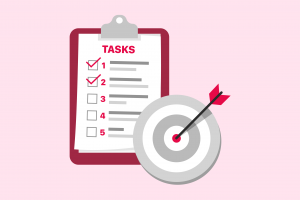 Set attainable objectives using time-management tactics, reviewing your to-do list, and eliminating chores and busywork of little to no value.
Set attainable objectives using time-management tactics, reviewing your to-do list, and eliminating chores and busywork of little to no value.
Pay attention to your most productive work time and set aside that time for your most critical job-related activities. Avoid checking your emails and phone every few minutes since they are huge time-wasters that disrupt your concentration and productivity. Work productivity may be increased by structuring your day, resulting in more free time to unwind outside of work.
Take Frequent Breaks
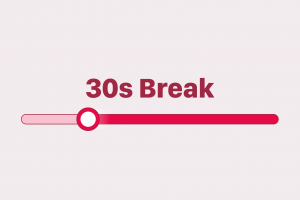 Take a 15-minute break every hour and a half. This allows your brain to process and remember information. According to The Energy Project, humans naturally transition from total concentration to physiological exhaustion every 90 minutes.
Take a 15-minute break every hour and a half. This allows your brain to process and remember information. According to The Energy Project, humans naturally transition from total concentration to physiological exhaustion every 90 minutes.
It’s especially vital to keep these things in mind if you work at home and are trying to manage an efficient remote work schedule.
Even a quick 30-second break has the potential to:
- Increase focus.
- Reduce your stress.
- Maintain your interest
- Make your job more enjoyable.
Make Use of Your Lunch Break
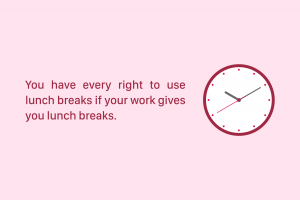 You have every right to use lunch breaks if your work gives you lunch breaks. And your lunch break should be used as a time to disengage from work completely, especially as lunch breaks are often unpaid time. Plus, it’s simply not good for you mentally and physically to keep working through lunch as you eat.
You have every right to use lunch breaks if your work gives you lunch breaks. And your lunch break should be used as a time to disengage from work completely, especially as lunch breaks are often unpaid time. Plus, it’s simply not good for you mentally and physically to keep working through lunch as you eat.
You should use this time to relax as much as you can and eat your food patiently. Having the right foods for good sleep and stress-free success can help you feel refreshed and energized after lunch.
Suppose your stress levels are high or you have a problem with chronic stress. In that case, you can also do brief breathing exercises or engage in some light stretches and exercise to relieve stress. Even looking at nature on your lunch can help ease stress levels.
Reading chapters in a print book is another way to unwind and disengage from the screen on your lunch break. Or you can listen to music, an audiobook, or a podcast as you walk.
Exercise Self-Compassion
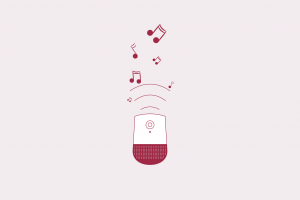 Avoiding perfectionism is one of the most effective methods to develop a feeling of work-life balance. For many, striving for perfection may have provided some success in school and early in one’s profession. However, the tension it produces builds up over time. As our obligations grow, so does the demand on our systems and emotional resources.
Avoiding perfectionism is one of the most effective methods to develop a feeling of work-life balance. For many, striving for perfection may have provided some success in school and early in one’s profession. However, the tension it produces builds up over time. As our obligations grow, so does the demand on our systems and emotional resources.
It is critical to remember that life is not simple. Everyone has struggles, and you will not always do everything correctly, or you will do a task adequately instead of exceeding expectations.
Recognizing this reality lets you alter your perspective toward a more tender growth-and-learning approach to your life. This can assist in maintaining a sense of equilibrium. It can also serve as an example for other people who need to hear this same message, such as struggling co-workers.
Invest in Relationships
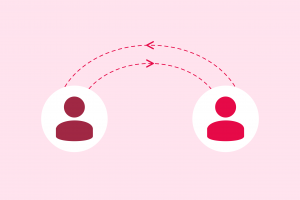 A lack of good relationships doubles the chance of dying prematurely from any cause by 50%. On the other hand, solid relationships and social support can improve health and prolong longevity.
A lack of good relationships doubles the chance of dying prematurely from any cause by 50%. On the other hand, solid relationships and social support can improve health and prolong longevity.
Spend time cultivating connections that are important to you. If you perform the preceding steps to disconnect, you will be able to pay greater attention to the people you spend your time with.
Begin Small
 Better healthy habits can help you feel better about yourself. These can include things like being active and optimizing your food habits. However, developing these behaviors might be challenging.
Better healthy habits can help you feel better about yourself. These can include things like being active and optimizing your food habits. However, developing these behaviors might be challenging.
Afterall, who hasn’t had a New Year’s resolution that fails by mid-February? Motivation alone is insufficient to motivate behavioral change.
The other crucial factors for success are the ability to execute the activity and a trustworthy reminder that urges us to do it. One approach to success is to create something so basic and small that you have no excuse not to do it. You’ll be able to complete it even if you’re pressed for time, unwell, or distracted.
Seek Assistance
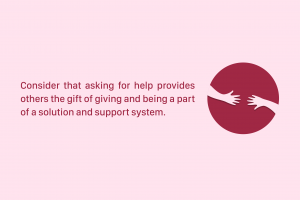 High-achieving professionals are sometimes guilty of taking on too much responsibility. They don’t want to “bother” anyone by requesting assistance. Identity (“I’m supposed to be the one who has it all together”) or emotions of duty (“Who else will do it if I don’t?”) can both play a role in trying to do everything on your own.
High-achieving professionals are sometimes guilty of taking on too much responsibility. They don’t want to “bother” anyone by requesting assistance. Identity (“I’m supposed to be the one who has it all together”) or emotions of duty (“Who else will do it if I don’t?”) can both play a role in trying to do everything on your own.
Consider that asking for help provides others the gift of giving and being a part of a solution and support system. This increases the value of reciprocal partnerships for everyone concerned. Or in other words, working together with your colleagues on a task or project can draw you all closer together.
Can Sleep Improve Work-Life Balance?
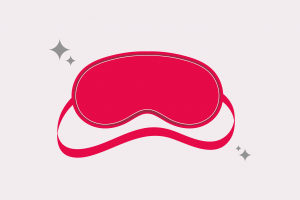 We live in a world where we are always pressed for time. As a result, we deny ourselves many crucial things, such as obtaining adequate exercise and following a healthy diet. Most significantly, we deprive ourselves of sleep. Our busy schedules can cut into sleep time, leaving us facing the next day tired and unproductive. This can start a cycle of trying to do more and more on less sleep.
We live in a world where we are always pressed for time. As a result, we deny ourselves many crucial things, such as obtaining adequate exercise and following a healthy diet. Most significantly, we deprive ourselves of sleep. Our busy schedules can cut into sleep time, leaving us facing the next day tired and unproductive. This can start a cycle of trying to do more and more on less sleep.
While most of us believe that a handful of sleepless nights won’t hurt us, consistently skipping a whole night’s sleep might be harmful. According to a 2012 poll, sleep deprivation is connected to 274,000 workplace accidents annually, and insomnia or sleep deprivation impacts businesses and the government by more than $31 billion.
More and more experts believe employers should assist employees in achieving work-life balance, which unavoidably includes enough relaxation and sleep. Work-life balance is a mental health issue, and chronic sleep deprivation is well-known to be detrimental to mental health. As a result, it undermines the ability to achieve work-life balance.
So, how might getting an extra hour of sleep affect your work-life balance? It might, and we suggest using a sleep calculator to figure out your ideal bedtime.
Enhancing Cognitive Capacities
Sleep deprivation has an impact on our cognitive capacity. There is a well-established link between lack of sleep and cognitive difficulties, with consequences such as being irritated, having difficulty concentrating, and feeling less productive.
As a result, we frequently struggle to communicate at work and complete our tasks. However, even an extra hour of sleep can improve our cognitive capacities, productivity, and capacity to focus.
Improving Your Health
Maintaining your physical health is essential for establishing a work-life balance. Being healthy is vital for your work performance and your general well-being.
It is commonly recognized that a lack of sleep is harmful to our health. It can cause high blood pressure, decreased immunity, heart disease, and even increased diabetes risks in a short period.
During sleep, your immune system creates cytokines, which are molecules that combat inflammation and infection. They are the building blocks that strengthen your immune system and make it more resistant to infections. The same is true for your central nervous system. When your brain is weary from lack of sleep, it is more difficult to convey pain and damage messages to your body.
You expose yourself to many dangers when you don’t get enough sleep. Maintaining a work-life balance becomes difficult while dealing with the implications of sleep deprivation.
Enhancing Your Well-Being
Researchers have investigated the consequences of sleep deprivation on our mood for many years. The University of Pennsylvania researchers discovered that even partial sleep deprivation causes tension and anxiety. Subjects who slept for only 4.5 hours felt depressed, stressed, and weary. As a result, the impact of sleep on our mood and overall well-being is apparent.
There is also an important link between sleep deprivation and psychological issues. Just as adequate sleep strengthens our bodies, it also helps our minds heal and feel safer. As a result, many people who suffer from sleep loss or insomnia frequently feel uncomfortable or sad.
All of these variables have a direct influence on our professional and social lives. When we are sleep deprived and dissatisfied with our jobs, it not only affects our performance and ability to socialize with others, but it may also lead to various work-related incidents. For example, sleep-deprived nurses on the night shift make more patient care errors.
As a result, many businesses have begun to take action and care for their employees’ well-being. That is why a balanced work shift and the capacity to get enough rest, followed by physical workouts and a nutritious diet, are essential to affect work-life balance favorably.
So please, get some rest after a long work day. If you are sleep deprived, you will be unable to function well at work while also enjoying your life.
Remember that getting a good night’s sleep comes first and foremost. Suppose you organize your sleeping habits with a bedtime timeline and nightly routine and get adequate sleep every night. In that case, you can prevent numerous health issues and live a more balanced life.
Frequently Asked Questions
How do I know if my work/life balance is unhealthy?
Checking in with how you feel and asking yourself why you might not be feeling at your best can help. Do you feel consistently tired? Do you have time to work out, rest, and otherwise unwind from work? Is your work life seeping into what should be off-hours?
You can also ask the other people in your personal life if they've noticed anything off in your relationship with them. Have you seemed too busy to spend as much time with them as you used to? Has the time you spent together seemed less satisfying because you struggled to get your mind off of work?
How do I prioritize myself at work?
Knowing how to set boundaries and communicate realistic expectations is one way to put yourself first at work. Try to also avoid being swamped with busywork and unimportant side tasks. Lastly, don't get caught up in being 'perfect' and simply aim to do your best.
And when the work day's finished, unplug from your phone and computer. Remember, taking care of yourself is a necessity and not a luxury you can pass up on. Do what you can to be in good shape for the work day with regular exercise, a healthy diet and a full night's rest.
What causes poor work/life balance?
Feeling pressured to work beyond the standard 35 to 40-hour work week is one primary reason that people have a poor work-life balance. After all, if there's less time for your personal life, then you'll struggle to strike an even balance between the two aspects.
This feeling may not even be due to longer hours. Having a long commute to and from work can still instill a feeling of obligation to the job, instead of giving you time to unwind after work.
Being unable to shut off communications with bosses and co-workers outside of working hours can also contribute to poor work-life balance.
Balance Your Professional & Personal Lives
Integrating one’s work and personal life is continually and ever-changing. As your hobbies and life circumstances shift over time, you should expect to expand your knowledge and become more flexible constantly. Let it be enjoyable!
In addition, make it a habit to review your priorities regularly to account for any shifts in your life. You will need to evaluate whether or not your preferences still correspond with how you invest your time and effort in the world.
This article is for informational purposes and should not replace advice from your doctor or other medical professional.


